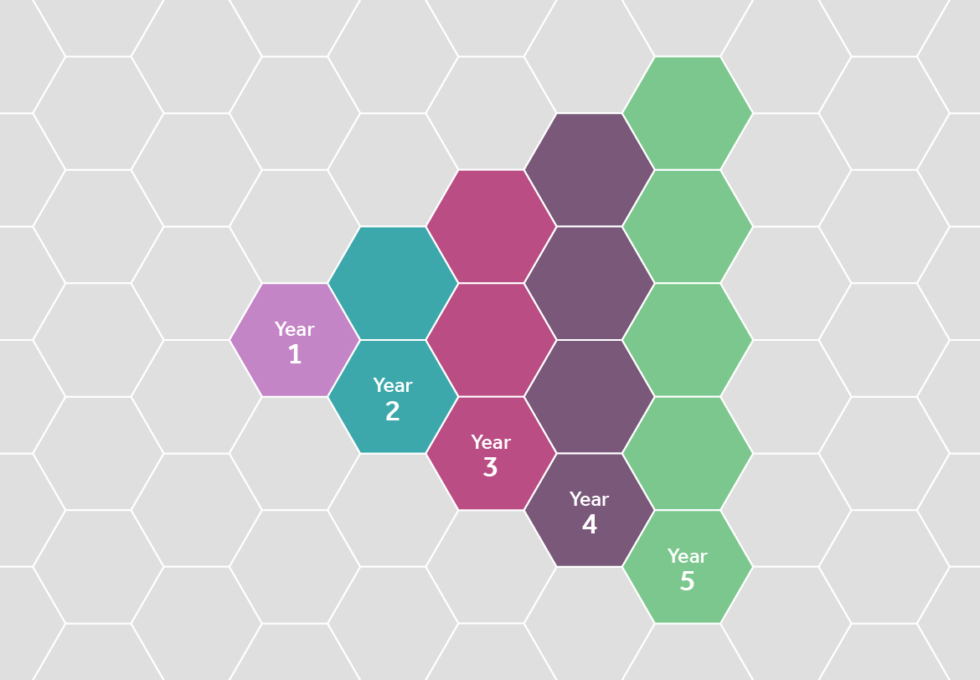
We’ve all heard of Aesop’s fable about the tortoise and the hare, where the over-confident hare mocks the slow tortoise. In response, the tortoise suggests a race between the two to prove he’s not as slow as the hare thinks. The smug hare, stopping to take a nap mid-race, fails to notice the steady tortoise quietly overtake him. Upon waking and realising his mistake, he hurtles to the finish line at break-neck speed but alas, has left it too late. The tortoise pips the hare to the post and finishes first. Hooray!
As with all good fables, there is a message in there for all of us. Slow and steady wins the race.
This is especially true when it comes to sustainability reporting. It can be so tempting for companies to dive straight in given this has become such a hot topic in recent years. Media coverage of negative economic impact on the planet has increased and stakeholders are clamouring for companies to take action as a result. In turn, companies want to respond to their stakeholders and to protect their business from negative threat and potential damage.
Additionally, more and more companies are coming under pressure to report as a result of legislation, such as the European CSRD. (Check out our primer on the CSRD here). This is either because they are in scope themselves or because they supply a company in scope for legislation. In these latter cases, this means micro companies and SMEs are now being asked by key customers to report on their GHG emissions and supply chain for the very first time.

Faced with an ultimatum to either report or lose business, many businesses understandably panic and rush to report. If you find yourself in this situation, please take a deep breath and hold back.
While RBESG’s free STS Report templates will help you significantly reduce the time it takes to design and develop your sustainability or ESG report, it is important to remember that your sustainability report is a reflection of your efforts so far. It is an output of a series of strategic goals, commitments, targets, principles, policies and procedures that you have put in place in your organisation to transform your sustainability position. If you haven’t actually done this work before producing your report, it will quickly become apparent to those in the know and may seriously damage your reputation.
For example, many of us have encountered well-meaning companies who have been accused of greenwashing. This occurs as a result of saying one thing in a sustainability report whilst exhibiting unsustainable or harmful behaviours in their business day-to-day. While the company’s senior management team may really be invested in sustainability, the rest of the organisation may just not have received the memo. This could be due to a lack of awareness of company priorities; insufficient knowledge of sustainability in general; or a lack of resources to implement and embed the changes needed to support the company’s sustainability ambitions.
To effect lasting change requires intention and effort, which is why we recommend a targeted transformation programme that lays the foundations for on-going reporting and verification. As enterprise sustainability is a journey, stakeholders want to see progression year-on-year, with companies ratcheting up their ambition as they go. This requires businesses to have underlying structures and processes in place to measure and manage their progress, develop strategy and to report authentically and transparently on their efforts.

This last point on authentic, transparent reporting may also require some companies to overcome a common innate instinct to always present themselves in a favourable light. A company’s sustainability report is not a marketing report. It is intended to be an honest reflection of how the company is doing in terms of its impact on the environment, people, human rights and the wider economy. By all means this should include celebrations of positive impact where these exist but more importantly, it should not omit any information related to instances where the company is causing harm or is at risk of causing harm. Being honest about adverse impact or shortcomings and sharing information on plans to address these will build stakeholder trust and stand to the company in the medium to longer term.
If you need help with your transformation, we offer a self-guide product STS Plan which outlines step by step how to approach, deliver and report on sustainability initiatives. This can be used by companies that first want to understand what’s involved before bringing in consultants or by those who want to deliver their sustainability transformation in-house. We also offer bespoke consultancy services to help scope your sustainability and reporting requirements and/or to support your delivery.
Please email info@rbesg.com for more information.
PS. Don’t forget to use the checkout code ‘Welcome100’ to download your free set of STS Report sustainability and ESG report templates.






